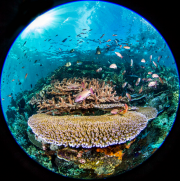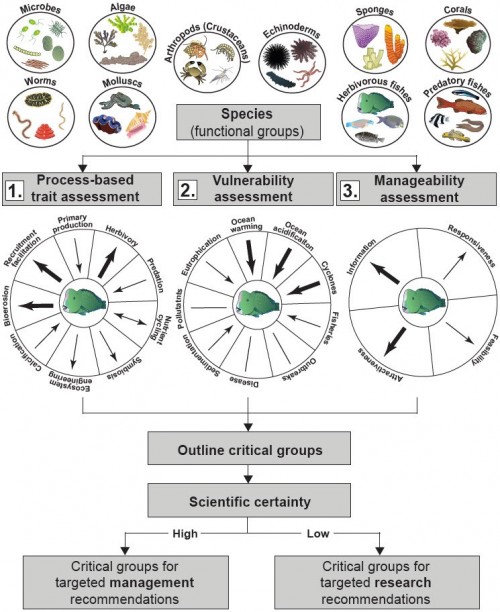NESP TWQ Round 4 - Project 4.6 - Recommendations to maintain functioning of the Great Barrier Reef
The Great Barrier Reef is experiencing increased environmental stress which threatens its functioning. Yet a subset of species are often disproportionately important in maintaining a functioning ecosystem. This project harnesses Queensland’s breadth of reef expertise to deliver timely recommendations on what can be done to strengthen and protect key supportive species. Specifically we ask which species – or functional groups of species – drive processes that maintain a healthy reef. We provide a scientific consensus in support of (1) species’ rankings and recommendations for enhanced protection, (2) informed scenarios for what’s at stake: the consequences of not taking further action, and (3) make recommendations for targeted R&D. We will also suggest activities that can be undertaken by citizen science organisations to help monitor the status of priority species or identify areas of either outstanding value or threat.
Images
Datasets

The majority of data integrated in NESP 4.6 was based on either a) expert elicitation and surveys, or b) literature reviews. Two case studies used data from additional sources:
Case study 2: carbonate budget data was calculated for the GBR from AIMS LTMP data between 2014-2018.
Case study 5: included experiments of CoTS juvenile feeding preferences between three algal types (biofilm, CCA and Ampiroa), and so data in this spreadsheet is unique.
Methods:
Elicitation scores and ranks: Main modes expert elicitation and literature review







